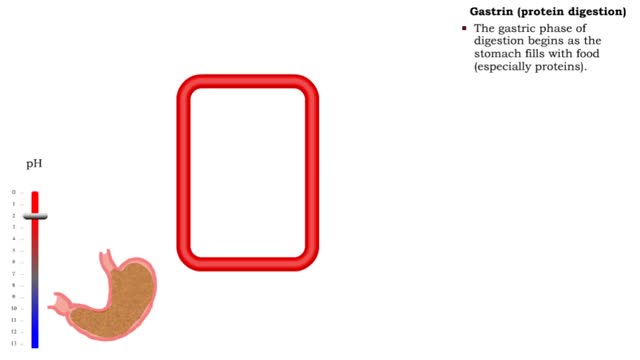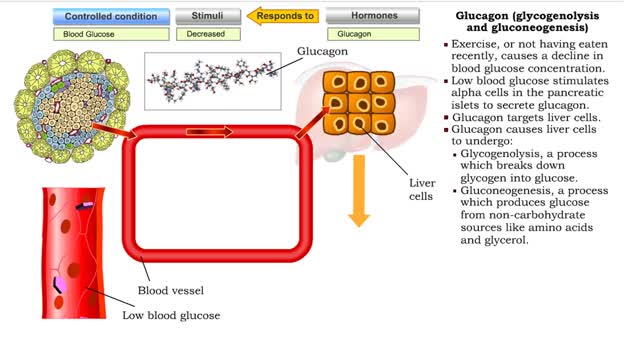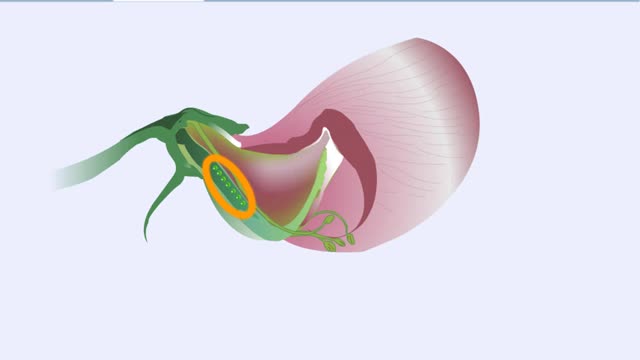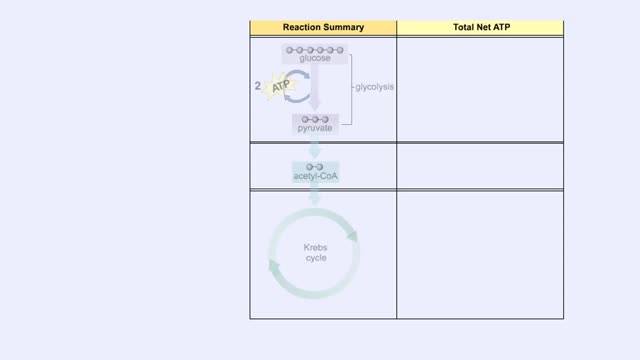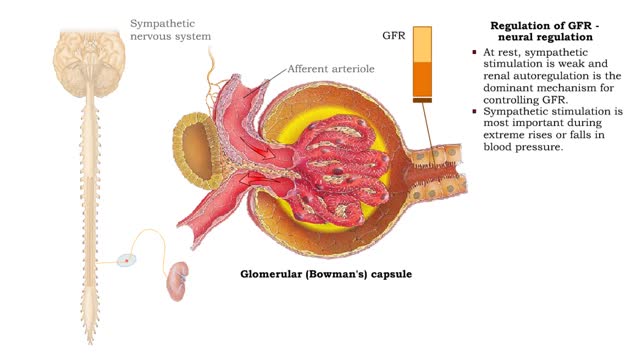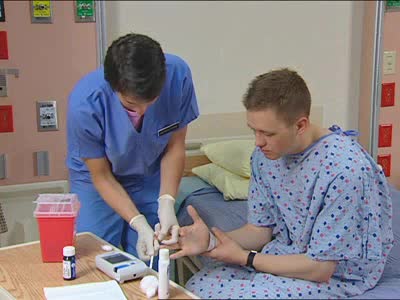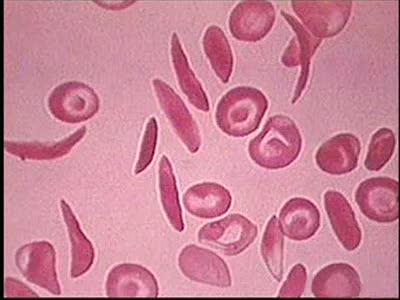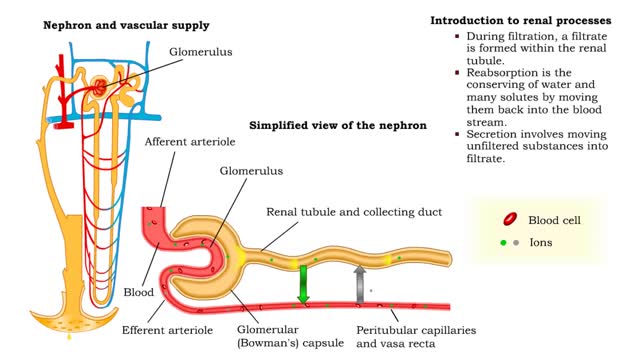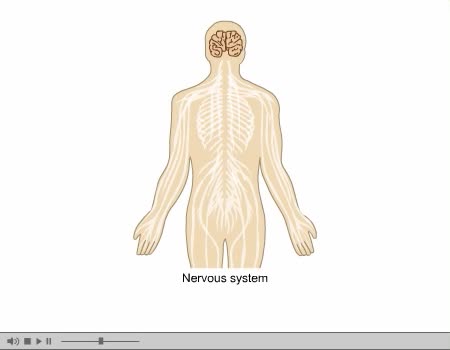Search Results
Results for: 'second and third levels of protein structure'
By: HWC, Views: 11815
The endocrine system maintains many body conditions within normal limits with feedback loops. Each endocrine feedback loop maintains homeostasis using the following components: • Stimulus - a change in a body condition. • Production cell - an endocrine cell that produces a hormone after b...
Glucagon (glycogenolysis and gluconeogenesis)
By: HWC, Views: 11530
• Exercise, or not having eaten recently, causes a decline in blood glucose concentration. • Low blood glucose stimulates alpha cells in the pancreatic islets to secrete glucagon. • Glucagon targets liver cells. • Glucagon causes liver cells to undergo: • Glycogenolysis, a proce...
By: HWC, Views: 11126
Sugar snap peas were common garden plants during Mendel's lifetime and many varieties undoubtedly grew in the abbey gardens. An avid gardener. this is where Mendel first made observations about pea plants. He noticed that certain characteristics of peas were passed from generation to generation. ...
ETC Protein Complexes & Chemiosmosis (Total ATP Production and ATP Synthase)
By: HWC, Views: 11409
You will notice that FADH2 donates two electrons further downstream than NADH. This results in only two protons being pumped across the inner membrane. The final electron acceptor for these transported electrons is oxygen. Oxygen receives these electrons, plus protons from the aqueous matrix. ...
Regulation of GFR: autoregulation via tubuloglomerular feedback, neural & hormonal regulation
By: HWC, Views: 12740
• When blood pressure is above normal, rapid filtrate flow reduces ion retention so filtrate in tubule has more Na+, C1-, and water. • It is believed that vasoconstricting chemicals from the juxtaglomerular cells are released when the macula densa cells detect higher water and ion levels in ...
By: Administrator, Views: 14971
Hb A1C Test Blood test used to: diagnose diabetes identify people at risk of developing diabetes monitor how well blood sugar levels are being controlled by the diabetic patient Fasting Blood Sugar (FBS) Test performed on blood to determine the level of sugar in the bloodstream. Also ref...
Introduction to Sickle Cell Anemia
By: Administrator, Views: 15193
Sickle cell anemia (sickle cell disease) is a disorder of the blood caused by an inherited abnormal hemoglobin (the oxygen-carrying protein within the red blood cells). The abnormal hemoglobin causes distorted (sickled appearing under a microscope) red blood cells.
Introduction to filtration - filtrate formation and composition
By: HWC, Views: 11843
• At the nephron, the three process responsible for the formation of urine include: • Glomerular filtration. • Tubular reabsorption. • Tubular secretion. • During filtration, a filtrate is formed within the renal tubule. • Reabsorption is the conserving of water and many s...
By: Administrator, Views: 14661
In the nervous system, a synapse is a structure that permits a neuron (or nerve cell) to pass an electrical or chemical signal to another neuron or to the target effector cell. Synapses are essential to neuronal function: neurons are cells that are specialized to pass signals to individual tar...
Advertisement



